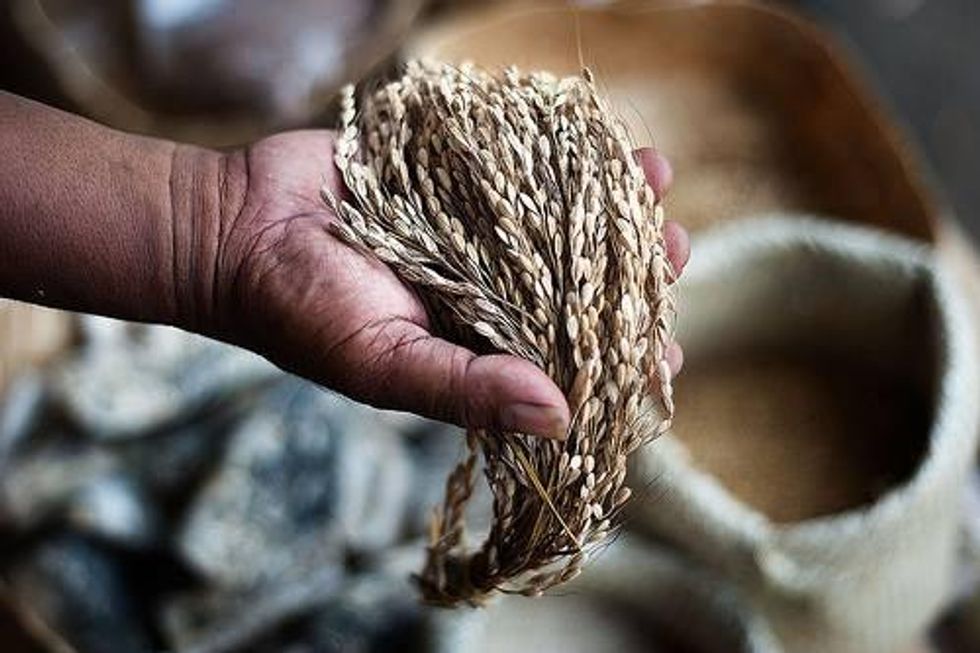Farmers rallied outside the European Parliament on Monday in protest of a proposed law they say would threaten biodiversity and put multinational control over seeds.
Peasant farmer group La Via Campesina says the biggest problems with the proposed law are:
- widespread marketing of patented plants and varieties, the risk of a total ban of farm-saved seeds and resulting potential contamination of all farm-saved seeds;
- privatization of public control of the market, replaced by large private entities controlled by industry, or, in the case of large companies by their own internal controls;
- setting production and marketing standard that are inaccessible to small operators and organic seeds;
- and finally the increased difficulty for certain associations involved in biodiversity conservation to continue disseminating their seeds.
For consumers, Ben Raskin of the UK-based charity Soil Association writes that "If this law goes through, it is likely you will be paying more for a smaller choice of seeds and plants from fewer, larger companies."
In addition to drawing attention to these issues ahead of the vote on the legislation, the peasant advocacy group is championing the role of small farmers at the start of what the UN has dubbed as International Year of Family Farming.
La Via Campesina says that it is only peasant farming that can address climate change and protect the environment, and that farmers must be able to freely exchange and save their seeds as they have for generations.
"African farmers still have all the seeds gathered and selected by hundreds of generations before them," Elizabeth Mpofu, a peasant from Zimbabwe and general coordinator of La Via Campesina International, said at the demonstration in Brussels. "They are committed to growing and preserving these seeds and to protecting them from GMOs [genetically modified organisms] and patents in order to pass on this invaluable heritage to future generations, who will need it to feed themselves. The current legislation does not guarantee peasants' rights and for this reason European laws should not infringe on the rights of peasants around the world."
____________________




